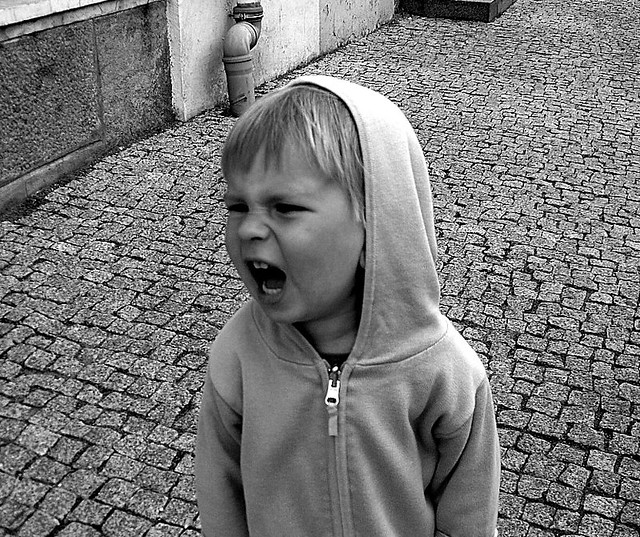Register now or log in to join your professional community.

Good discipline comes down to 3 things:

Examples of goal #1: (developing a correct identity & worldview)
BAD: Parent says "Stop hitting, you're always hitting your sister!" This reinforces the child's perceived identity as being a hitter who always hits! Instead, you explain that job of people who are strong is to protect the weak. Explain the identity as a friend and a protector, and when discipline is necessary, do it while highlighting the correct identity, not the bad behavior. If it's a young child, playing a short protect-the-baby game to drive your point home goes even further.
BAD: Parent yells "STOP YELLING!" Or abruptly hits a child for hitting. This communicates that social standards like self-control and not yelling don't apply to adults or authority figures. Instead, you have to control yourself and when YOU are calm enough to execute discipline properly explain: "This (timeout, spanking, etc) is because you knew that abc is how you should have acted, but instead, you chose xyz."
Discipline, when done correctly, exemplifies the values that you want your children to model. If you've lost your temper through the child's disobedience, you should address your problem before addressing theirs. Remember, every time you discipline, you're being an example to them of how to deal with conflict, establish healthy boundaries, etc. If your response to conflict with them is to fly off the handle, then that's extremely counter productive to the lesson you're trying to teach them.
Examples of goal #2: (maintaining trust and connection)
BAD: Parent jumps straight to discipline without hearing the intentions of the child. Many times (especially with young kids and toddlers), the thought was good, but the action was bad. If you take time to hear them out, you can not only better instruct the future action, but you keep and even increase connection.
BAD: Parent disciplines a young child by looming from above with a strong, booming voice. Nothing says "I love you and care for you, let's stay connected" like this action, that's for sure!
Discipline done right should increase connection and trust every time (yes, even when the child is exuding a terrible temper!). A good practice is to, after each discipline, step away and ask if you increased or decreased connection. Remember, sooner than you'd like, that child will be grown and out of your house forever, and the only thing you'll have left is the connection you've built. FOR CERTAIN, no adult child will take much guidance from a connection-less parent once they're out of the house.
Examples of goal #3: (empowering the child)
To make it simple, give your child choices...lots and lots of choices. Every choice you give them empowers them in the relationship. Being too specific with tasks and guidelines is extremely disempowering (just like that micromanaging boss you once had). Instead of saying a firm "get your pajamas on and get to bed now", you can ask "do you want to get your pajamas on and then go to bed, or go to bed and get dressed there?" The simple act of offering your child choices makes a WORLD of difference to them, and for you, the outcome is the same.
Instead of saying "clean up this room...NOW", try instead "So, this room needs to be clean by dinnertime, do you want to clean it now or in a few minutes?" If the child defers to later, make sure to present a boundary/consequence if it's not done (no dessert). You can even give them a choice of discipline options/consequences.
While this is a great relational/cultural tool in the home, it's also a tremendous tactic for calming down an unruly child or toddler. When trying to pull a child out of a bad attitude without blowing up yourself, begin offering as many choices as possible as fast as possible, to empower the child's state of mind. For bedtime with an irate toddler: "do you want your bear in your bed or on the floor?" "do you want him by your pillow or your feet" "do you want him by your left foor or right foot?" "do you want red or blue pajamas"...rapid-fire-empowering-questions...a great way to calm the savage beast.
While one can certainly go overboard and allow the child to run the house, it's far more often the case that children are under-empowered in the home. By providing choices, you don't have to change any of your goals or standards - you simply provide the child a say in the process.

Expecting obedience merely because (I'm the parent)
Having little or no empathy to the child's needs and emotions
Failing to see the correlation between parents behaviour and child's misbehaviour

yelling at your child in public, it will give a psychological effect on the child. it will develop less self-confidence in the child.

I break down discipline into 3 categories:
Stubborn kids will rather forgo ice-cream than tidy their bedroom, thus leaving you back in a standoff where you resort back to enforcing punishment.
By far, in my experience, the best way to maintain discipline in the long run is to reward good behavior, i.e. positive reinforcement!



